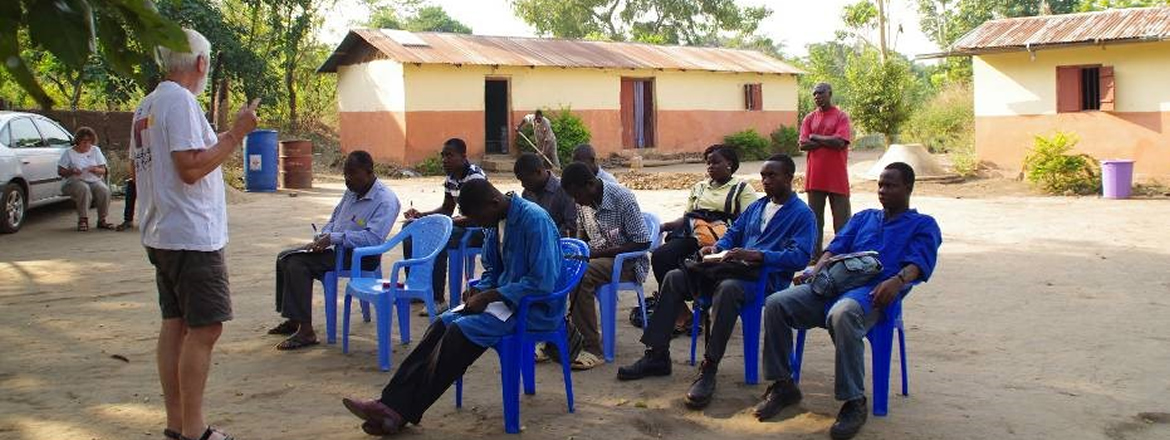
The aim of ESF is to carry out and/or take part in actions of international solidarity which allow access to electricity and/or water as levers of development. These actions mobilise the association Management Board (MB), associates, members and volunteers who will bring their skills, experience and will to commit themselves collectively to the benefit of the most underprivileged populations.
This Code lays down the behaviour of all those mentioned above in their participation in the association activities and specifies the values and principles which must be respected, which have the integrity, rigour and professionalism of everyone as their basis.
1 – The fundamental points
1.1 Respect of the person
ESF adheres to the universal principles shared by all the international solidarity organisations, in particular those laid down in the Universal Declaration of Human Rights and the conventions of the International Labour Organisation (ILO).
1.2 Sense of the collective
ESF collaborates with other international solidarity actors. As part of their mission all those who work in or for the association (MB members, employees, volunteers and members) work for the benefit of one single and unique association project which is founded on modes of operation which are necessarily collective.
1.3 Solidarity
The actions of ESF are aimed at improving the social, economic and cultural conditions of populations who do not have essential services such as electricity and/or water.
1.4 Financial transparency
ESF urges and mobilises all possible supporters (public organisations, companies, private people etc.) who may be able to finance or co-finance its actions in full transparency. The association is rigorous in the use of the funds available to it, the traceability of expenses borne and the care taken to maximise efficiency and impact for beneficiaries.
2 – Governance
2.1 Transparency
Transparency, towards all those who act in or for the association, guides all the actions and structures the organisation of ESF. It is the condition of its reliability and sustainability.
2.2 Sharing
Internal solidarity and the desire to share skills, knowledge and experience are at the centre of the associative operation of ESF.
2.3 Internal democracy
ESF promotes a participative activity. The MB members are its motors and guarantors.
2.4 Altruism
MB members, associates, members and volunteers are at the service of the associative project and have the task of supplying or improving access to essential services such as electric power and/or water for populations who do not have them. They start up or take part in actions with the permanent concern of completing this associative project without ever waiting for and/or asking for any recompense, apart from the personal satisfaction of having taken part in an action of solidarity.
2.5 Volunteering
The MB members, associates, members and volunteers are not paid. In their commitment to the association they find a way of satisfying and making use of their skills and the chance to give significance to their action.
2.6 Skills
The success of the actions started by ESF requires the availability and development of different and clearly identified skills, as well as a spirit of resourcefulness and adaptation to situations.
3 – The activities
3.1 Listening
The actions of ESF are the result of the priority needs of the populations directly involved.
3.2 Social cohesion
ESF starts or takes part in actions which do not create any form of exclusion and takes all precautions to limit the risks of undue appropriation of the installations and services supplied by an individual or part of the beneficiary populations.
3.3 Refusal of exploitation
ESF works in absolute political, trade union and religious independence and operates where needed, without exception.
3.4 Coherence
All the actions of ESF respect the association’s values and principles.
3.5 Sustainability of actions
The sustainability of access to electric power and/or water is a priority challenge and a permanent concern of the actions of ESF.
